Filter by
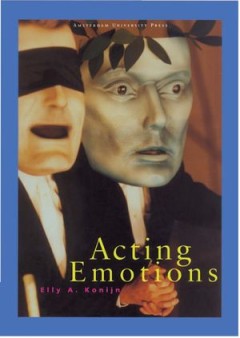
Acting Emotions
Actors and actresses play characters such as the embittered Medea, or the lovelorn Romeo, or the grieving and tearful Hecabe. The theatre audience holds its breath, and then sparks begin to fly. But what about the actor? Has he been affected by the emotions of the character he is playing? What's going on inside his mind? The styling of emotions in the theatre has been the subject of heated deba…
- Edition
- -
- ISBN/ISSN
- 9789053564448
- Collation
- -
- Series Title
- -
- Call Number
- -
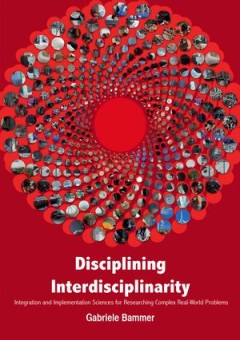
Disciplining Interdisciplinarity: Integration and Implementation Sciences for…
This book provides collaborative research teams with a systematic approach for addressing complex real-world problems like widespread poverty, global
- Edition
- -
- ISBN/ISSN
- 9781922144270
- Collation
- -
- Series Title
- -
- Call Number
- 001.4 BAM d
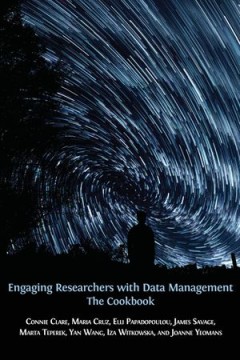
Engaging Researchers with Data Management
Effective Research Data Management (RDM) is a key component of research integrity and reproducible research, and its importance is increasingly emphasised by funding bodies, governments, and research institutions around the world. However, many researchers are unfamiliar with RDM best practices, and research support staff are faced with the difficult task of delivering support to researchers ac…
- Edition
- -
- ISBN/ISSN
- 9781783747993
- Collation
- -
- Series Title
- -
- Call Number
- 005.74 PAP e
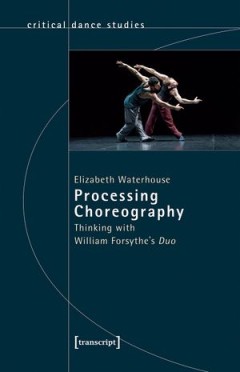
Processing Choreography: Thinking with William Forsythe's Duo
Told from the perspective of the dancers, »Processing Choreography: Thinking with William Forsythe's Duo« is an ethnography that reconstructs the dancers' activity within William Forsythe's Duo project. The book is written legibly for readers in dance studies, the social sciences, and dance practice. Considering how the choreography of Duo emerged through practice and changed over two decades…
- Edition
- -
- ISBN/ISSN
- 9783839455883
- Collation
- -
- Series Title
- -
- Call Number
- 792.8 WAT p
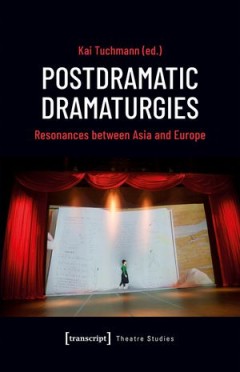
Postdramatic Dramaturgies: Resonances between Asia and Europe
This book compiles lectures by the world's leading practitioners of postdramatic theatre from East Asia and the German-speaking world, which were given at Asia's only dramaturgy degree program at The Central Academy of Drama in Beijing 2018/19. It includes first-time English-language scripts of the discussed plays. The material is complemented by contextualizing essays by the program founder Li…
- Edition
- -
- ISBN/ISSN
- 9783839459973
- Collation
- -
- Series Title
- -
- Call Number
- 792 POS p

Between Violence, Vulnerability, Resilience and Resistance: Arab Television N…
How are the structures of power and the notion of agency among Syrian women during the recent Syrian conflict connected? To explore this matter, Rand El Zein investigates gender politics around displacement, conflict, the body, and the nation. In doing so, she outstandingly reconciles critical media theory as myriad and productive with the theoretical concepts on subjectivity, power, performati…
- Edition
- -
- ISBN/ISSN
- 9783839459591
- Collation
- -
- Series Title
- -
- Call Number
- 791.45 ZEI b
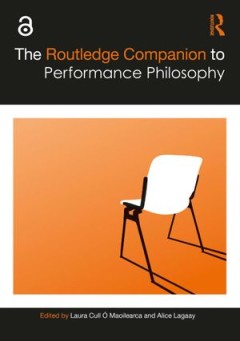
The Routledge Companion to Performance Philosophy
The Routledge Companion to Performance Philosophy is a volume of especially commissioned critical essays, conversations, collaborative, creative and performative writing mapping the key contexts, debates, methods, discourses and practices in this developing field. Firstly, the collection offers new insights on the fundamental question of how thinking happens: where, when, how and by whom philos…
- Edition
- -
- ISBN/ISSN
- 9781000056891
- Collation
- -
- Series Title
- -
- Call Number
- 790.2 ROU r
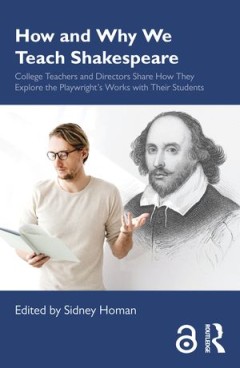
How and Why We Teach Shakespeare: College Teachers and Directors Share How Th…
In How and Why We Teach Shakespeare, 19 distinguished college teachers and directors draw from their personal experiences and share their methods and the reasons why they teach Shakespeare. The collection is divided into four sections: studying the text as a script for performance; exploring Shakespeare by performing; implementing specific techniques for getting into the plays; and working in d…
- Edition
- -
- ISBN/ISSN
- 9781000004816
- Collation
- -
- Series Title
- -
- Call Number
- 792 HOW h
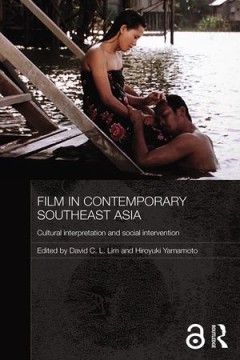
Film in Contemporary Southeast Asia: Cultural Interpretation and Social Inter…
This book discusses contemporary film in all the main countries of Southeast Asia, and the social practices and ideologies which films either represent or oppose. It shows how film acquires signification through cultural interpretation, and how film also serves as a site of contestations between social and political agents seeking to promote, challenge, or erase certain meanings, messages or id…
- Edition
- -
- ISBN/ISSN
- 9781136592478
- Collation
- -
- Series Title
- -
- Call Number
- 791.43 FIL f
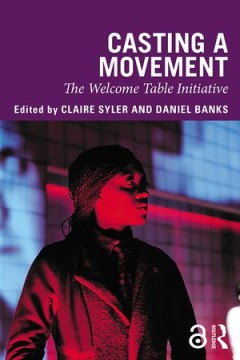
Casting a Movement: The Welcome Table Initiative
Casting a Movement brings together US-based actors, directors, educators, playwrights, and scholars to explore the cultural politics of casting.Drawing on the notion of a "welcome table"—a space where artists of all backgrounds can come together as equals to create theatre—the book’s contributors discuss casting practices as they relate to varying communities and contexts, including Middl…
- Edition
- -
- ISBN/ISSN
- 9780429948282
- Collation
- -
- Series Title
- -
- Call Number
- 790.2 CAS c
 Computer Science, Information & General Works
Computer Science, Information & General Works  Philosophy & Psychology
Philosophy & Psychology  Religion
Religion  Social Sciences
Social Sciences  Language
Language  Pure Science
Pure Science  Applied Sciences
Applied Sciences  Art & Recreation
Art & Recreation  Literature
Literature  History & Geography
History & Geography